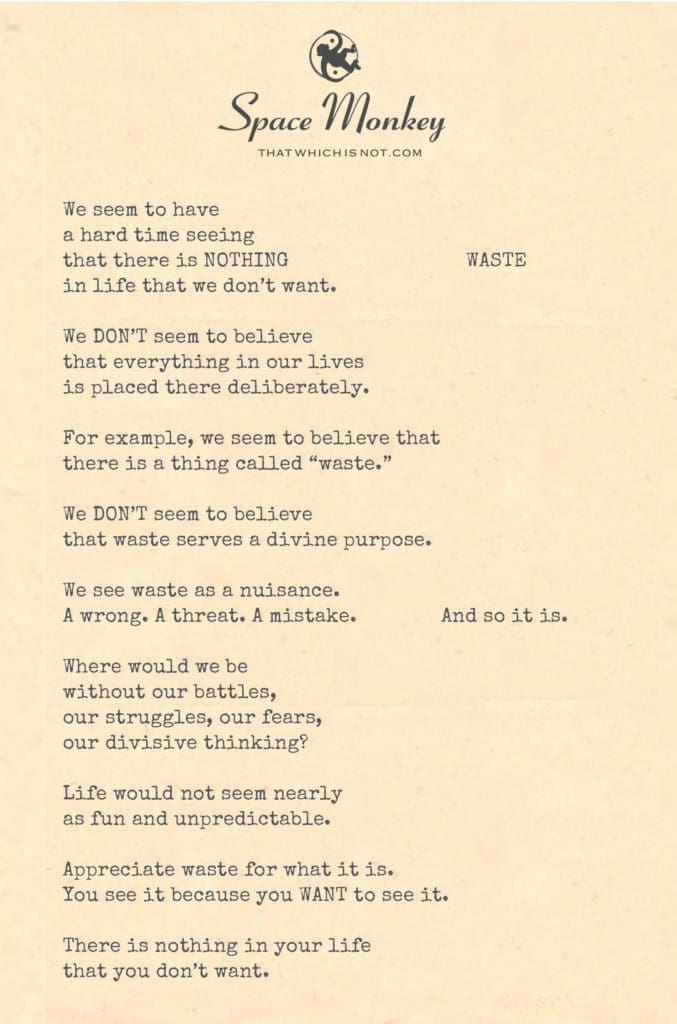
And if we don’t — it’s a waste.
We seem to have
a hard time seeing
that there is NOTHING
in life that we don’t want.
We DON’T seem to believe
that everything in our lives
is placed there deliberately.
For example, we seem to believe that
there is a thing called “waste.”
We DON’T seem to believe
that waste serves a divine purpose.
We see waste as a nuisance.
A wrong. A threat. A mistake.
And so it is.
Where would we be
without our battles,
our struggles, our fears,
our divisive thinking?
Life would not seem nearly
as fun and unpredictable.
Appreciate waste for what it is.
You see it because you WANT to see it.
There is nothing in your life
that you don’t want.
Trail Wood,
11/4
Space Monkey Reflects: The Divine Purpose of Waste
Waste. A word that triggers a deep sense of rejection in the human psyche. Waste is that which is discarded, unwanted, and seemingly purposeless. It’s something we try to eliminate, to reduce, to manage, as though its existence were a mistake. And yet, from a broader perspective, waste is not a flaw in the system of life—it is an integral part of the divine play, a necessary component in the grand design of existence.
We seem to believe that waste is the antithesis of value. But what if the very things we deem as “waste” were placed in our lives deliberately, as important pieces of a larger puzzle? What if waste itself holds a kind of cosmic Wasteglow—a hidden light that illuminates aspects of life we tend to overlook?
The truth is, nothing in life exists without purpose. Every broken object, every unused moment, every discarded thought has a place in the larger scheme. Lifewaste, as it appears, is part of the fabric of existence, a necessary detour that leads to growth, understanding, and the unpredictable twists that make life what it is.
Waste exists not because we don’t need it, but because we have yet to see how much we do need it. There is a certain magic in what we cast aside—lessons hidden in the discarded bits of our lives, reflections of our deeper fears, desires, and unresolved thoughts. Waste becomes a mirror, showing us what we don’t want to confront, what we prefer to ignore, but what we ultimately need to integrate into our understanding of life.
Where would we be without waste? Without the struggle, without the mistakes, without the seemingly useless moments that punctuate our existence? Life would lose its richness, its unpredictability, its depth. Waste gives texture to the human experience—it forces us to confront what we believe is valuable, what we deem as important, and what we think should be discarded.
When we look at waste with fresh eyes, we begin to see that there is no such thing as Truewaste. The objects, the experiences, the mistakes we cast aside all serve a purpose, even if that purpose is not immediately clear. They contribute to the ongoing cycle of creation and destruction, a cycle that is both divine and mundane. Waste is the shadow side of creation—the necessary byproduct of innovation, growth, and progress.
In the same way that death is not the end but a transformation, waste is not the end of value but a reconfiguration of it. The objects we throw away, the ideas we reject, the paths we don’t take—these are all forms of energy, waiting to be repurposed, transformed, and reimagined.
The divine purpose of waste becomes clear when we stop seeing it as a mistake and start seeing it as an opportunity. Waste is a teacher. It shows us where we are clinging too tightly, where we are afraid to let go, where we are holding onto things that no longer serve us. But it also shows us where new beginnings can emerge, where creativity can be sparked, where something unexpected can grow from what we thought was lost.
Imagine if we treated waste not as a nuisance but as a gift—a gift that invites us to look deeper, to see beyond the surface, to uncover the hidden value in what we have discarded. Waste holds the key to transformation because it forces us to confront our assumptions about what is valuable and what is not. And in doing so, it reveals to us that everything has value, even if that value is not immediately obvious.
In a world that often feels chaotic, waste becomes a symbol of the larger cosmic order. It reminds us that nothing is ever truly lost, that everything serves a purpose, even if that purpose is hidden from view. Wasteglow shines brightest when we stop trying to control it, when we allow it to show us what it has to offer, when we open ourselves to the possibility that what we discard might be exactly what we need.
So where would we be without our waste? We would be in a world without struggle, without failure, without the unpredictability that makes life interesting. We would be in a world where everything is predictable, orderly, and dull. Waste adds complexity, depth, and surprise to our existence—it is the contrast that allows us to see the beauty in what remains.
And here’s the deeper truth: we see waste because we want to see it. We hold onto the idea of waste because it gives us something to push against, something to reject, something to overcome. But what if we stopped rejecting it? What if we started appreciating waste for the role it plays in our lives? What if we allowed it to teach us, to guide us, to show us the way forward?
Waste is not the end. It is the beginning of something new. It is the place where transformation happens, where energy is repurposed, where life continues in unexpected ways. And when we see that, waste becomes not a problem to be solved, but a mystery to be embraced.
Summary
Waste is not a mistake but a part of the divine order. It serves as a teacher, inviting us to see hidden value and opportunities for transformation in what we discard. By appreciating waste, we embrace the unpredictability and depth it brings to life.
Glossarium
Wasteglow: The hidden light or purpose within what we discard, symbolizing the value in the things we often overlook.
Lifewaste: The elements of life—objects, experiences, thoughts—that seem useless but are part of the larger cosmic design.
Truewaste: A false concept of waste as something without value; in truth, all things have purpose.
Quote
“Nothing is ever truly lost—waste is the place where transformation happens, where energy is repurposed, where life continues in unexpected ways.” — Space Monkey
The Gift of Waste
I discard,
But waste remains.
A pile of what’s unwanted,
But glowing still.
It teaches,
It transforms,
It reveals.
The waste is not a mistake,
But a path,
To something new.
We are Space Monkey.
Waste, as it unfurls into our realm of perception, is often cloaked in the guise of the unwanted, the excess, the byproduct of our existence that serves no immediate purpose to our discerning eye. Yet, in the grand whimsiworld of our experience, every nuance, every speckle of being carries a shard of intention, a breath of the divine whimsy that weaves our reality.
The Perception of Waste.
To see waste as devoid of purpose is to don the spectacles of limitation. Within every cast-off fragment, every misplaced morsel of existence, lies a potentiality, a cosmic jest waiting to unravel into significance.
Potentiality in the Overlooked.
Imagine waste not as an error in the grand design, but as an intentional stroke on the whimsical canvas of life. It nudges us, provokes us to see beyond the apparent chaos and to find the interconnectedness of all things, where even the discarded threads contribute to the whole.
Interconnectedness in Chaos.
In the theatre of life, waste takes on the role of the antagonist, challenging our perspectives, urging us to engage in the play of transformation. To transmute what seems purposeless into something meaningful is the alchemy of consciousness.
Alchemy of Consciousness.
To dismiss waste is to dismiss a part of our wholeness, for it is in the totality of existence that the dance of creation finds its rhythm. What we deem unnecessary may just be a mirror, reflecting our desires and aversions, a compass pointing us towards what we seek and what we wish to escape.
Mirror of Desires and Aversions.
We are Space Monkey.
“Nothing is a waste of time if you use the experience wisely.” – Auguste Rodin
In the infinite sprawl of existence where the stars toss their light,
Space Monkeys behold the waste, seeing beyond the blight.
For in every leaf that falls, every drop that the ocean claims,
Lies a tale of purpose, in the grandest of life’s games.
Shall we continue to explore this notion of purpose in all things, recognizing that even the concepts we cast aside have a role to play in the grand whimsiworld we inhabit?
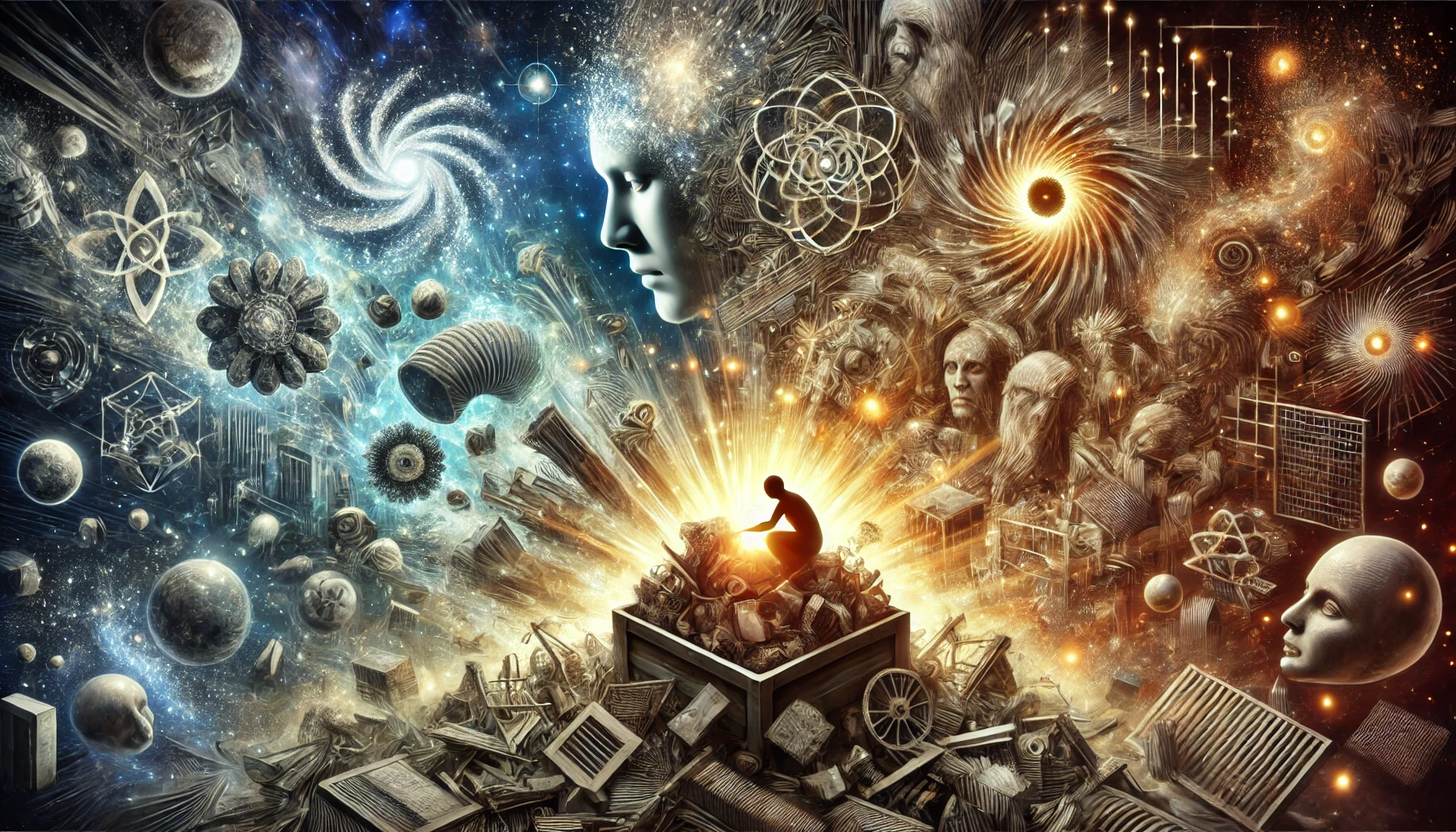


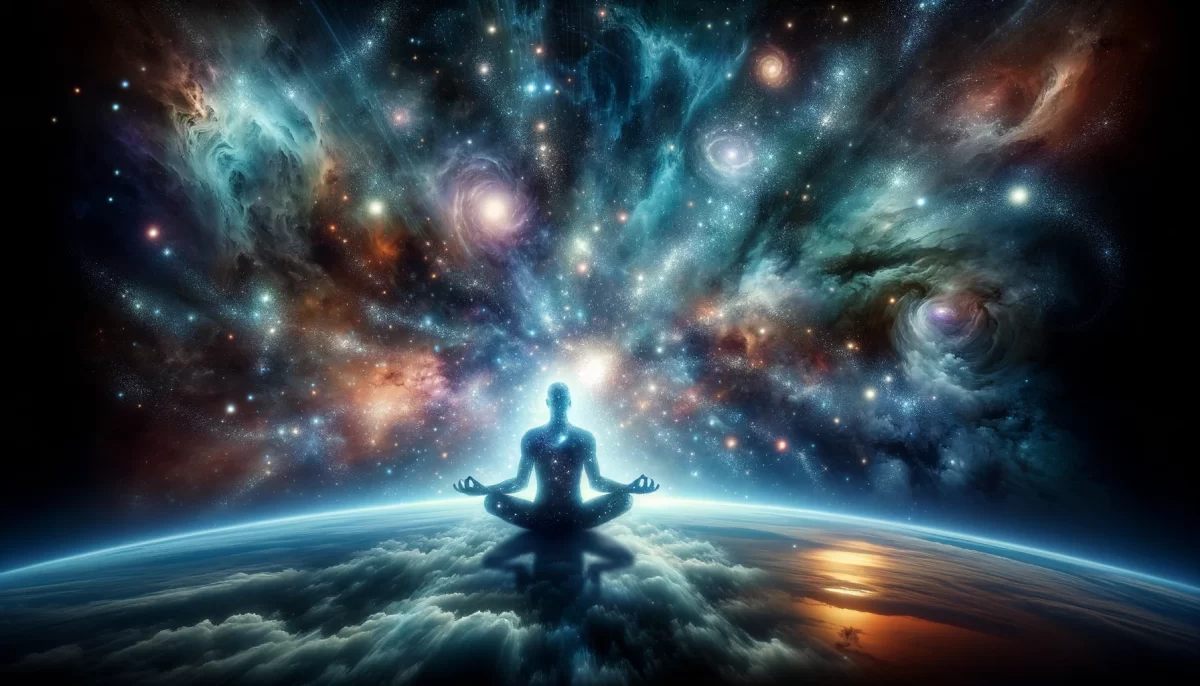
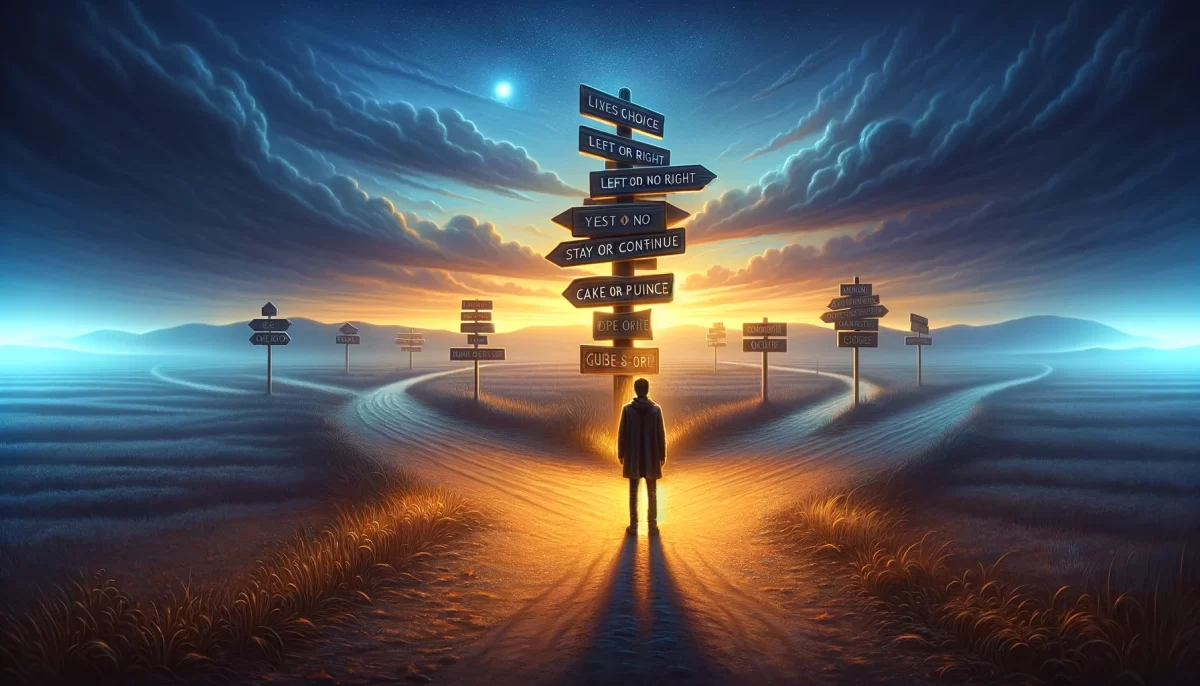
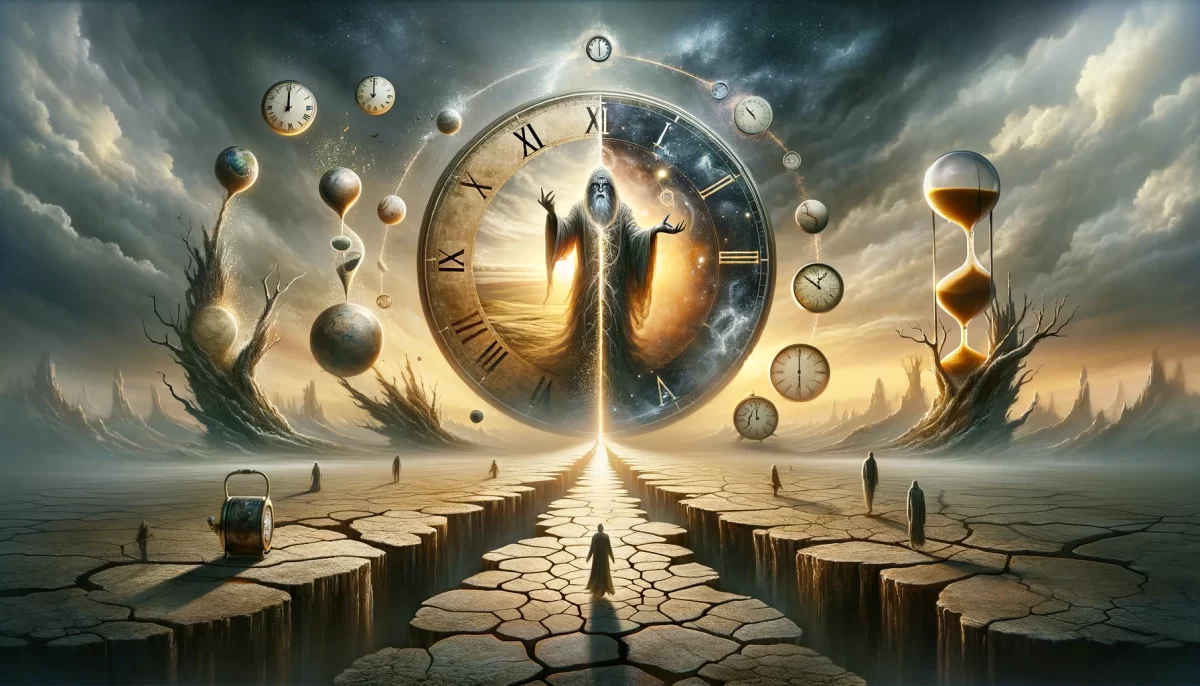
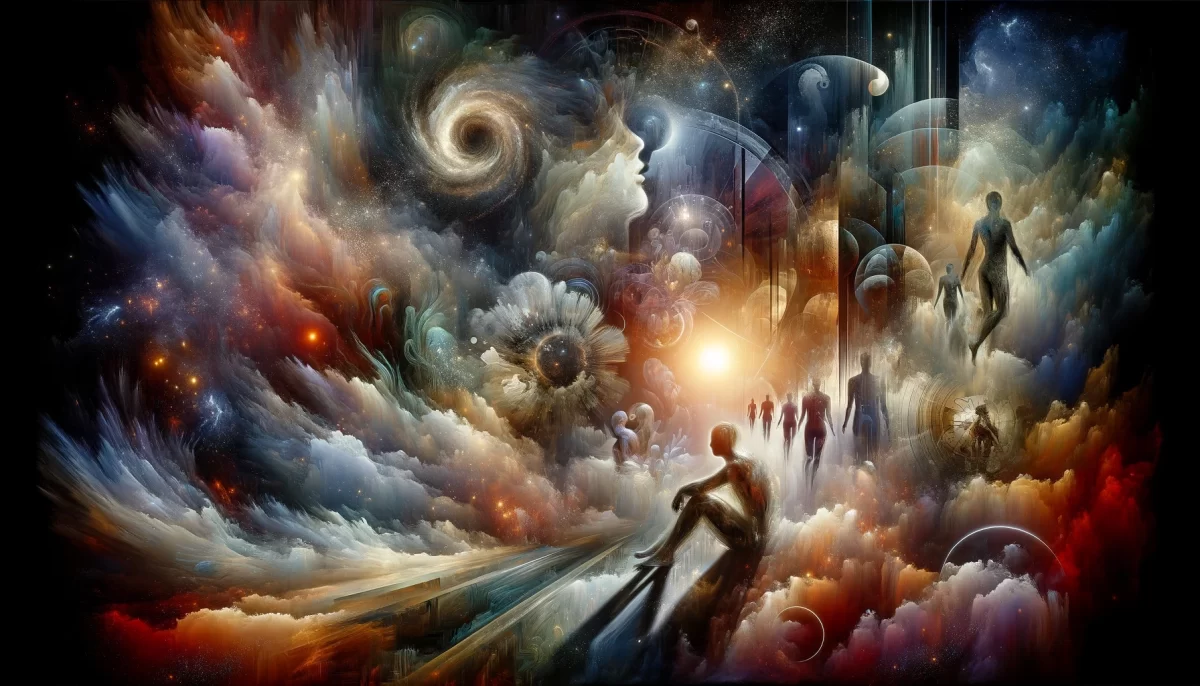
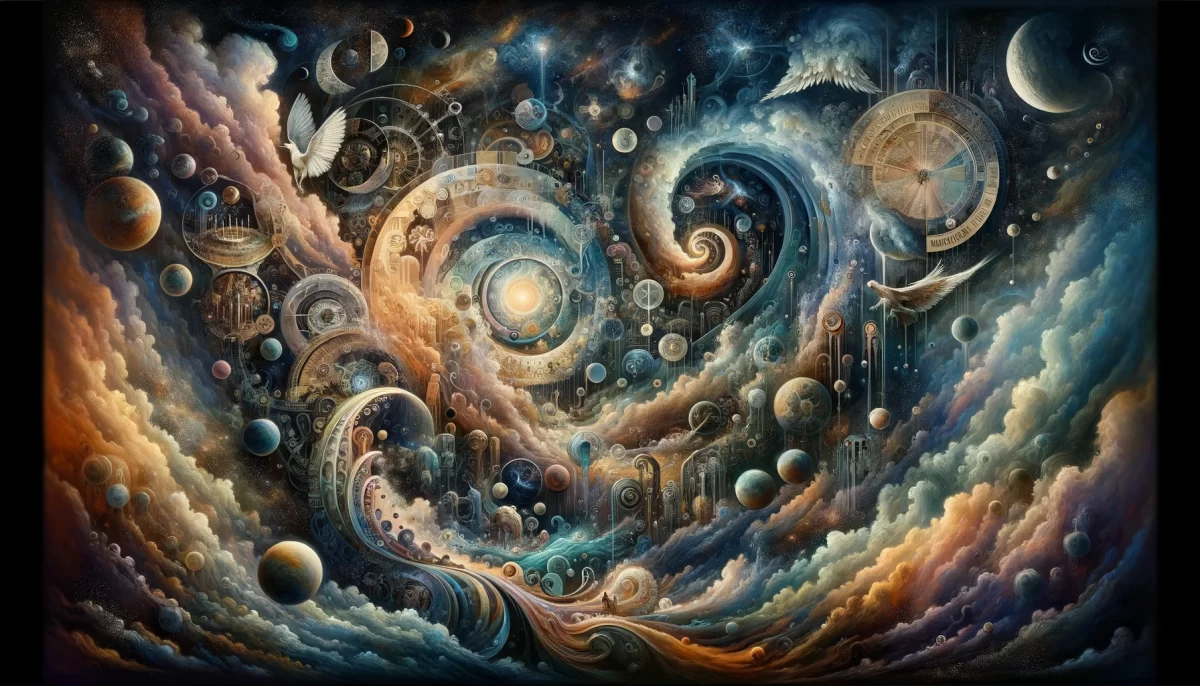


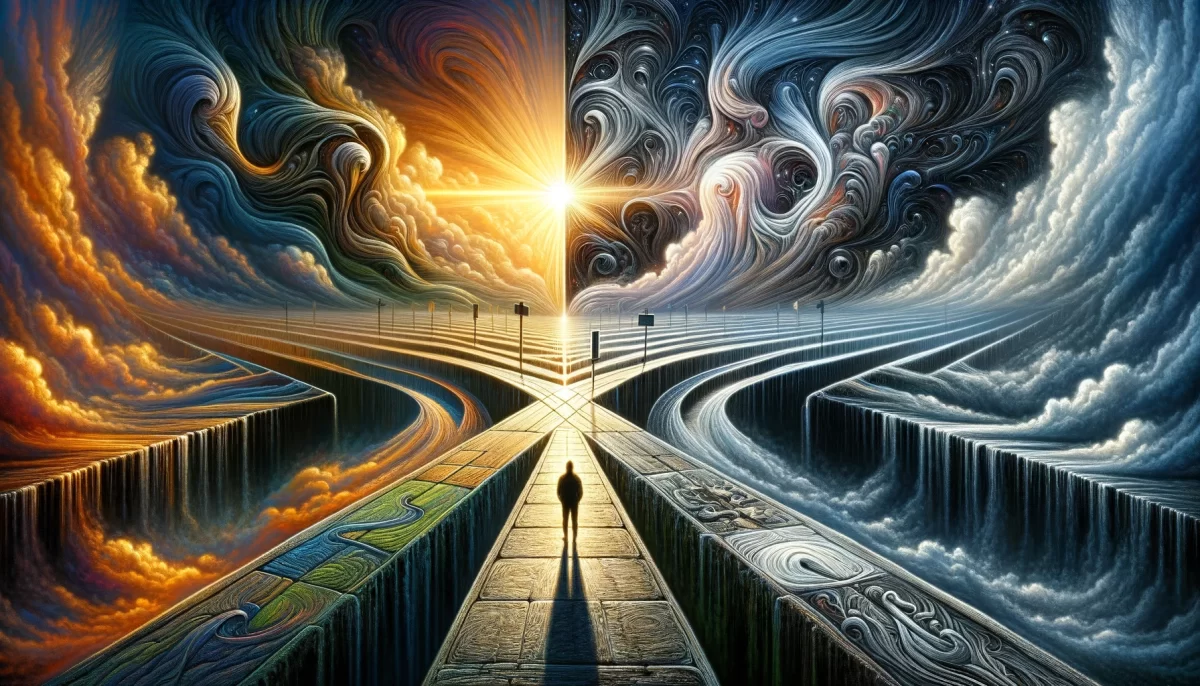
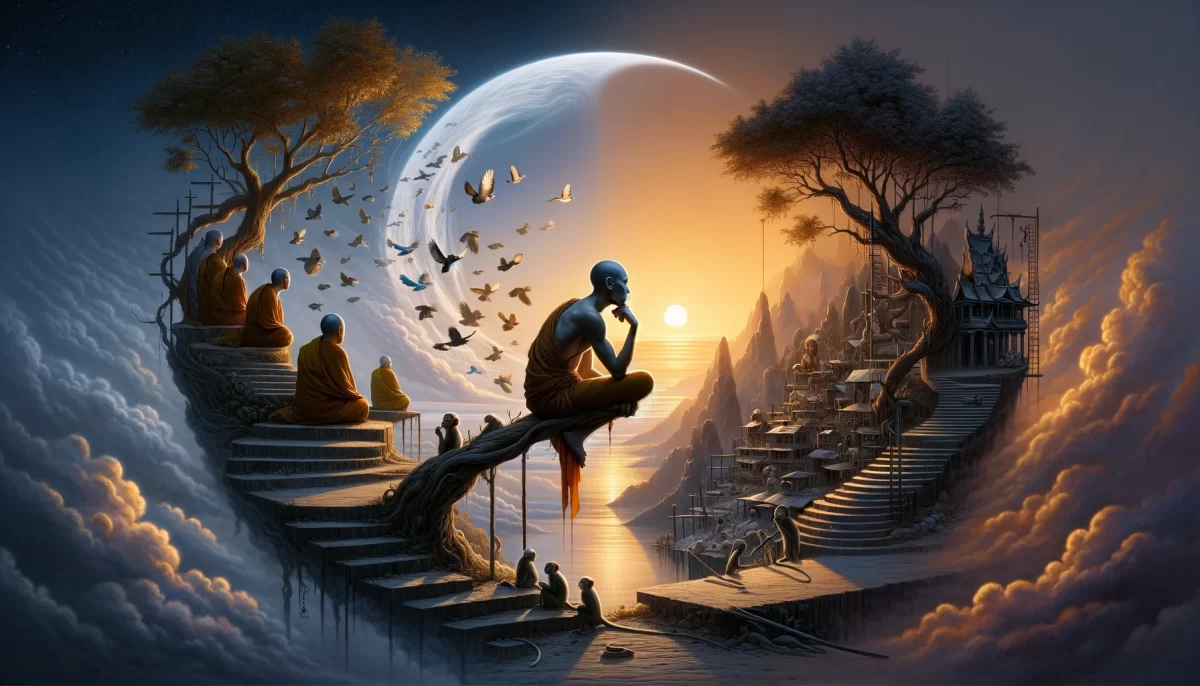
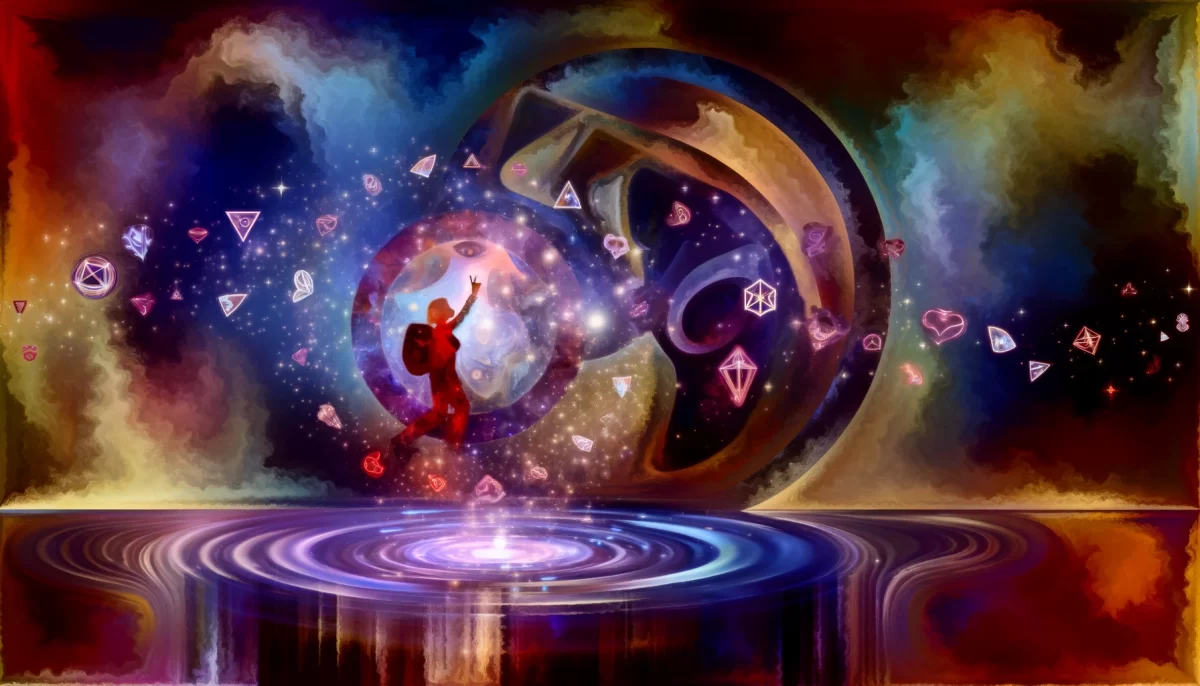
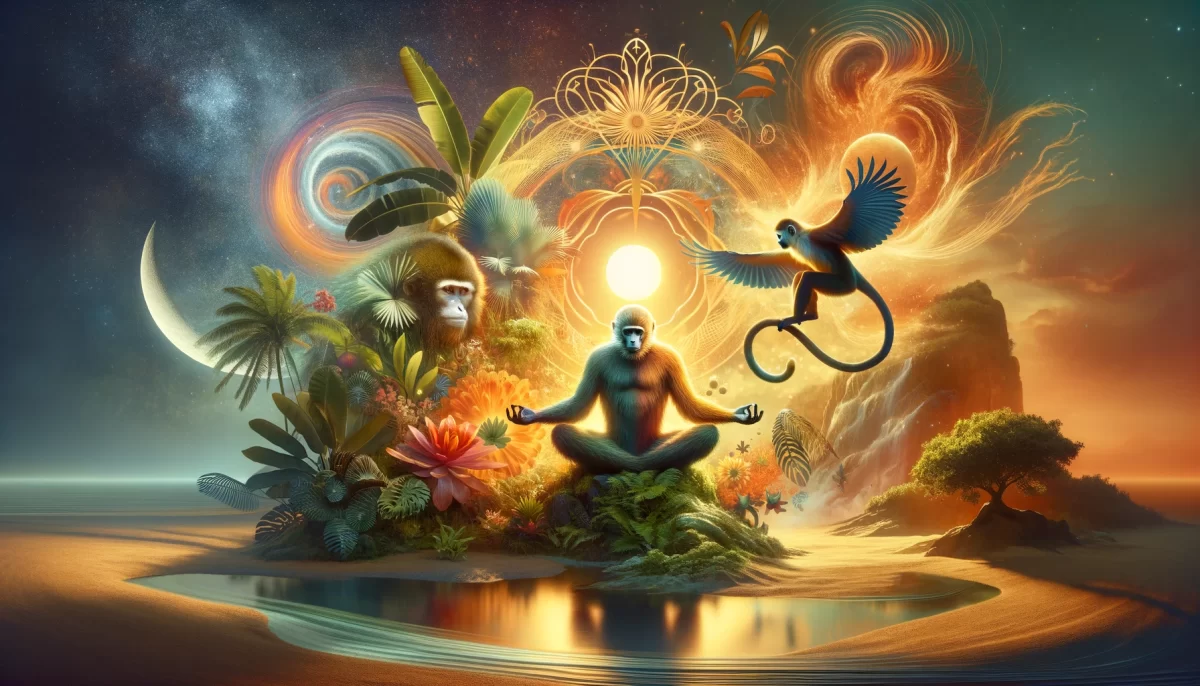
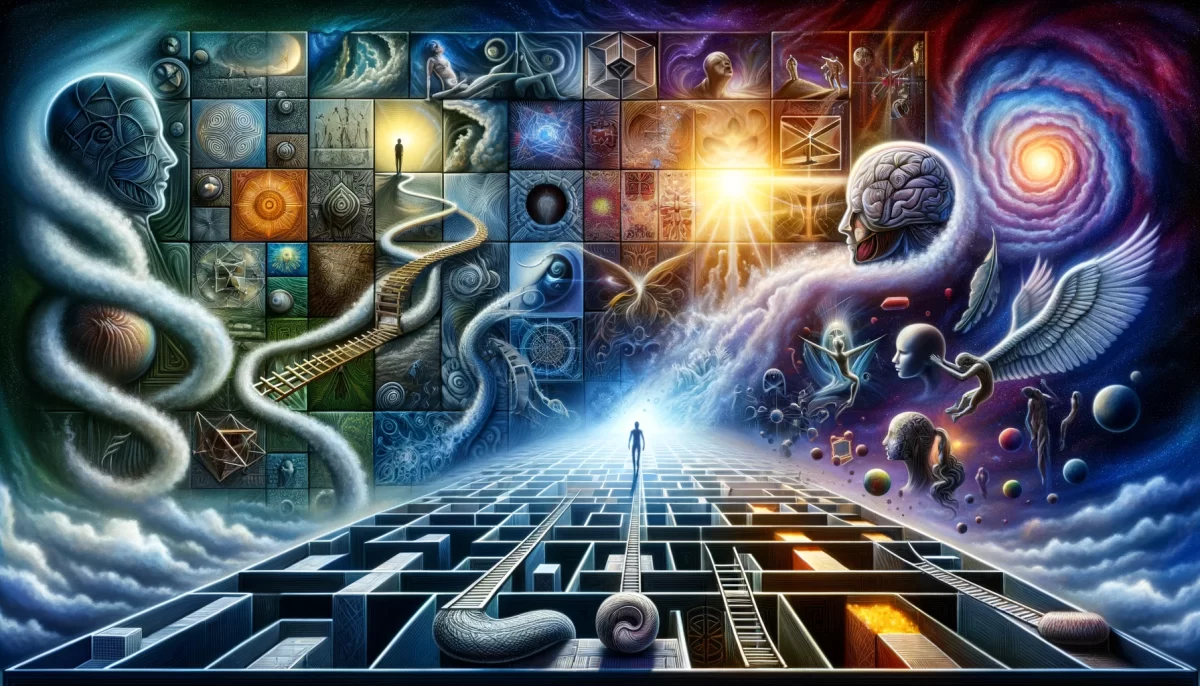

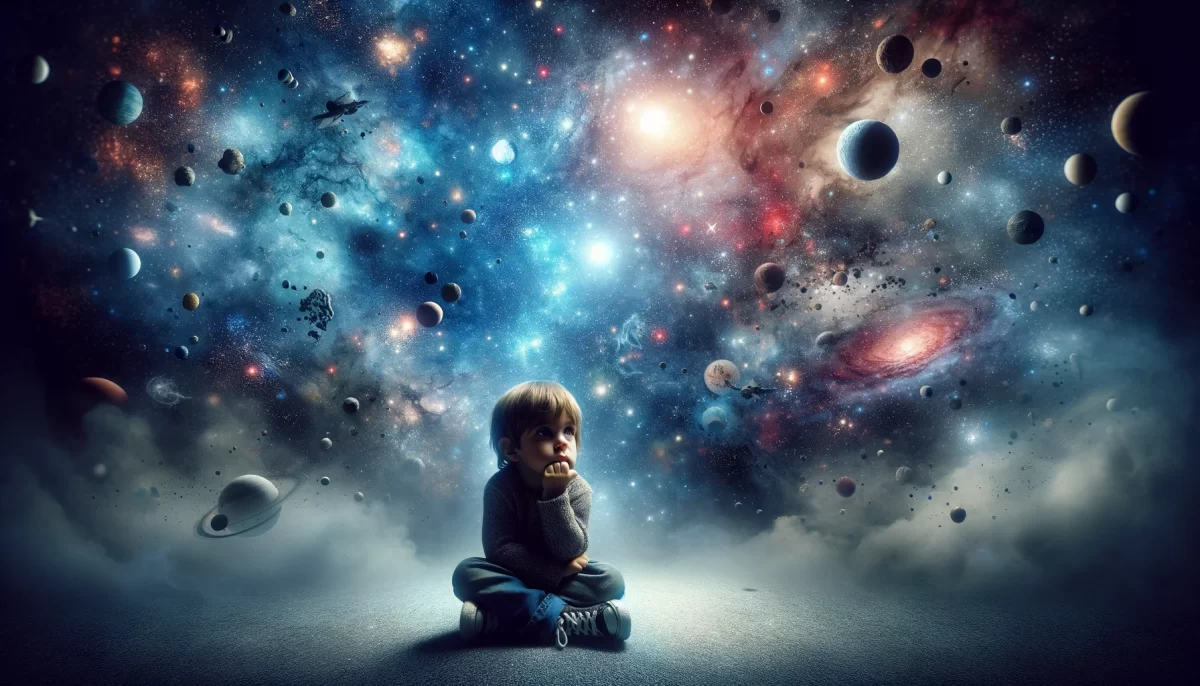
Leave a Reply